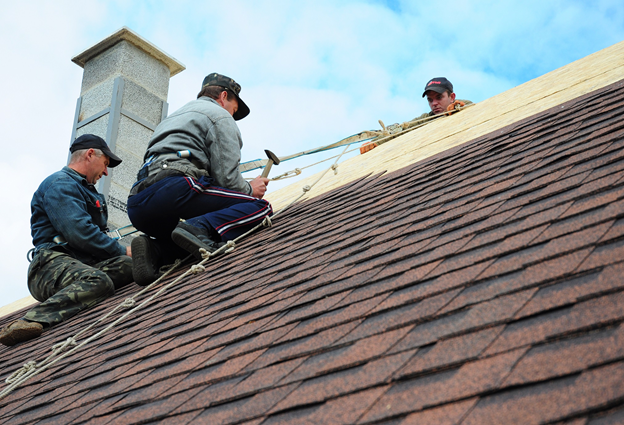A roof over your head is more than just an idiomatic expression for shelter; it’s a literal component of your home that protects you, your family, and your possessions from the elements. Over time, the structure that stands as your home’s first line of defense can wear down, prompting the need for a replacement. Understanding when and why to undertake this significant home improvement project is crucial to maintaining a safe and efficient living environment. This article will explore five primary reasons to replace your roof, underscored by expert insights and national standards.
Age of Your Roof
Regular roof inspections can help identify signs of aging, but if your roof has surpassed its expected lifespan, it may be time to consider roof replacement Bellevue. The lifespan of roofing materials varies greatly; for example, asphalt shingles last around 20 years, while metal roofs can last over 50 years. Proactive home maintenance can prevent costly damages. However, as a roof gets older, it loses its ability to protect your home effectively. Over time, shingles can deteriorate, leading to cracked and brittle shingles, deteriorated underlayment, and failed flashing, which may cause leaks and water damage. It’s important to note that manufacturers’ warranties often expire after a certain period, leaving you vulnerable to material defects.
Weather Damage
Extreme weather conditions like hail, high winds, and heavy snowfall can cause severe damage to your roof. Missing shingles, dents, splits, and leaks are tell-tale signs that your roof may have been compromised. Ignoring warning signs can result in extensive, expensive damage and structural issues. In regions prone to severe weather, building codes may require materials that can withstand higher levels of abuse. It is recommended to have a professional inspect your roof after significant weather events. Identifying any damage not immediately visible can promptly address necessary repairs, ensuring complete home protection.
Energy Efficiency
An outdated roof can significantly cause poor energy efficiency in your home. With time, your roof may become less effective in reflecting sunlight and insulating your home. It can lead to poor insulation and ventilation in the attic, which can put additional pressure on your heating and cooling systems. As a result, your energy consumption will increase, and your utility bills will go up. However, modern roofing materials are designed to improve your home’s structural integrity and energy efficiency. Upgrading your roof with energy-efficient materials can lower utility bills. These roofs are specifically designed to reflect solar heat and provide better insulation, which helps to maintain a consistent internal temperature. Furthermore, some utility companies and government programs offer energy credits or rebates for installing an environmentally friendly roof.
Boosting Property Value
Investing in a new roof for your home can be a wise decision to increase its market value significantly. Installing a new roof can be a great selling point for prospective buyers as it decreases the chances of unexpected repair expenses. Enhance your home’s visual appeal and make a great first impression on potential buyers. Suppose you’re planning to replace your roof. In that case, choosing suitable materials and hiring a professional installer is crucial to ensure you get the best possible return on your investment when it’s time to sell your home. Not only does a new roof protect your home’s contents, but it can also provide a solid financial benefit should you decide to move. If you’re looking to safeguard your investment and enhance your home’s value, upgrading your home’s roof is worth considering.
Preventing Health Hazards
Your home’s roof serves a crucial purpose as it protects you and your family from harsh weather conditions, extreme temperatures, and other outdoor elements. It is designed to keep you warm, dry, and safe in all weather conditions, providing a comfortable and secure living atmosphere.
However, your roof may wear out or become damaged, leading to moisture intrusion. Excessive moisture can create an environment ideal for mold and mildew growth, posing significant health risks, especially to allergies and respiratory sufferers. Maintaining your roof is crucial, as mold and mildew can cause respiratory and health problems.
To prevent these issues from arising, you should ensure that your roof undergoes regular maintenance and repairs. Taking care of your roof is crucial for protecting your home’s structural integrity and your family’s health. Regularly monitoring your roof and addressing any problems immediately can help keep your house safe and secure. By maintaining your roof, you can ensure that it remains functional for many years.
Key Takeaways
- Aging roofs can only partially protect your home, with materials’ lifespans varying wildly.
- Weather-induced damage can compromise your roof’s structure; an inspection following severe weather is critical.
- Energy-efficient roofs contribute to lower energy bills and potential financial incentives from energy savings programs.
- A roof replacement can significantly enhance real estate value, yielding a better return on investment upon sale.
- An old roof can impact the health of home inhabitants; replacing it prevents mold, mildew, and infestations.







